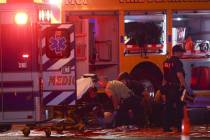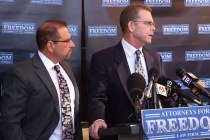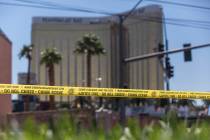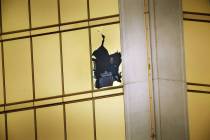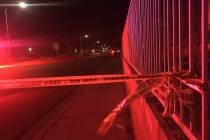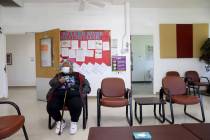The Arizona man who sold bullets to Las Vegas gunman Stephen Paddock has been granted more time to get rid of his guns and ammunition.
Rachel Crosby

Rachel Crosby is a general assignment reporter with a focus on criminal justice. The University of Florida graduate and Las Vegas native cut her teeth at internships with the Tampa Bay Times and Chicago Tribune before starting at the Review-Journal as a nightside crime reporter and columnist in 2015. Her work has helped document the scope of the Oct. 1 mass shooting.
A judge on Wednesday ordered Las Vegas police to release 911 calls and body camera footage from the night of Oct. 1, when a mass shooting on the Strip left 58 dead and more than 500 injured.
Federal prosecutors in Nevada have charged Arizona resident Douglas Haig with conspiracy to manufacture and sell armor-piercing ammunition.
The Clark County coroner’s office complied with a court order late Wednesday and released the autopsy reports of 58 people killed in the Oct. 1 mass shooting on the Strip.
In the months leading up to the Las Vegas mass shooting, Stephen Paddock scoured the internet. His searches included open-air concert venues, SWAT tactics and how certain bullets perform over different distances.
Metropolitan Police Department lawyers said Tuesday that criminal charges related to the Oct. 1 massacre may be coming in the next 60 days.
In the months leading up to the Oct. 1 shooting, Las Vegas gunman Stephen Paddock methodically planned a massacre, carefully sidestepping detection from authorities. But even in death, he continued to perplex, according to federal search warrant records a judge ordered unsealed Friday.
As a former crime reporter, readers sometimes ask me where to live. I don’t have the answer. But before you make a down payment, check out these maps and public meetings.
When the coronavirus hit the state, tribal nations say they were an afterthought in a scramble for supplies. Many remain on hard lockdown to protect members.




